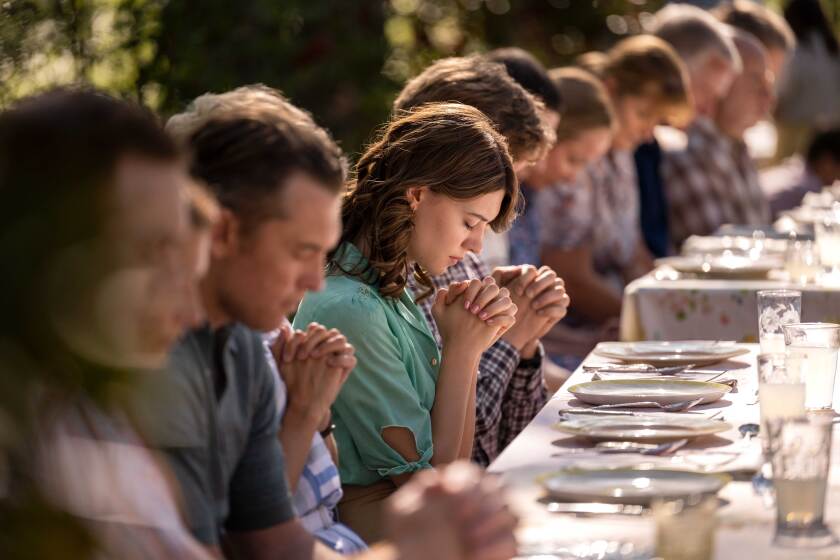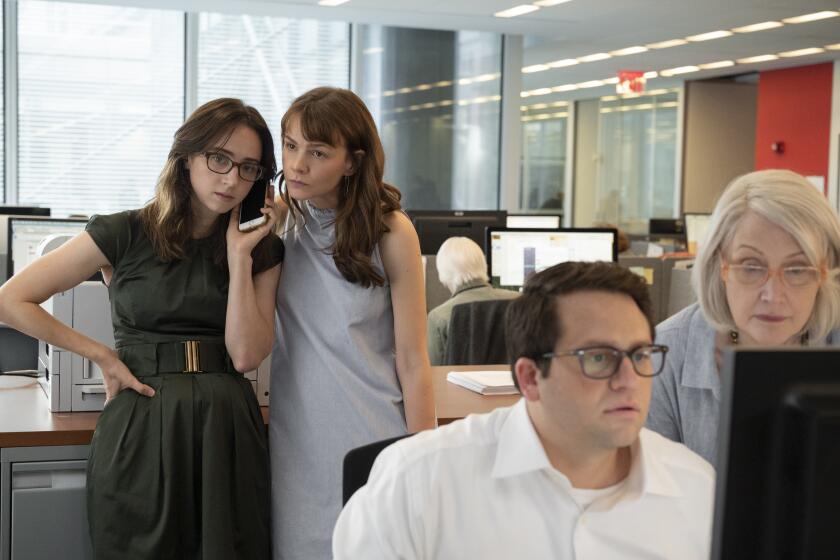Sexism on set made Sarah Polley ‘squirm.’ So she made a film by a new set of rules
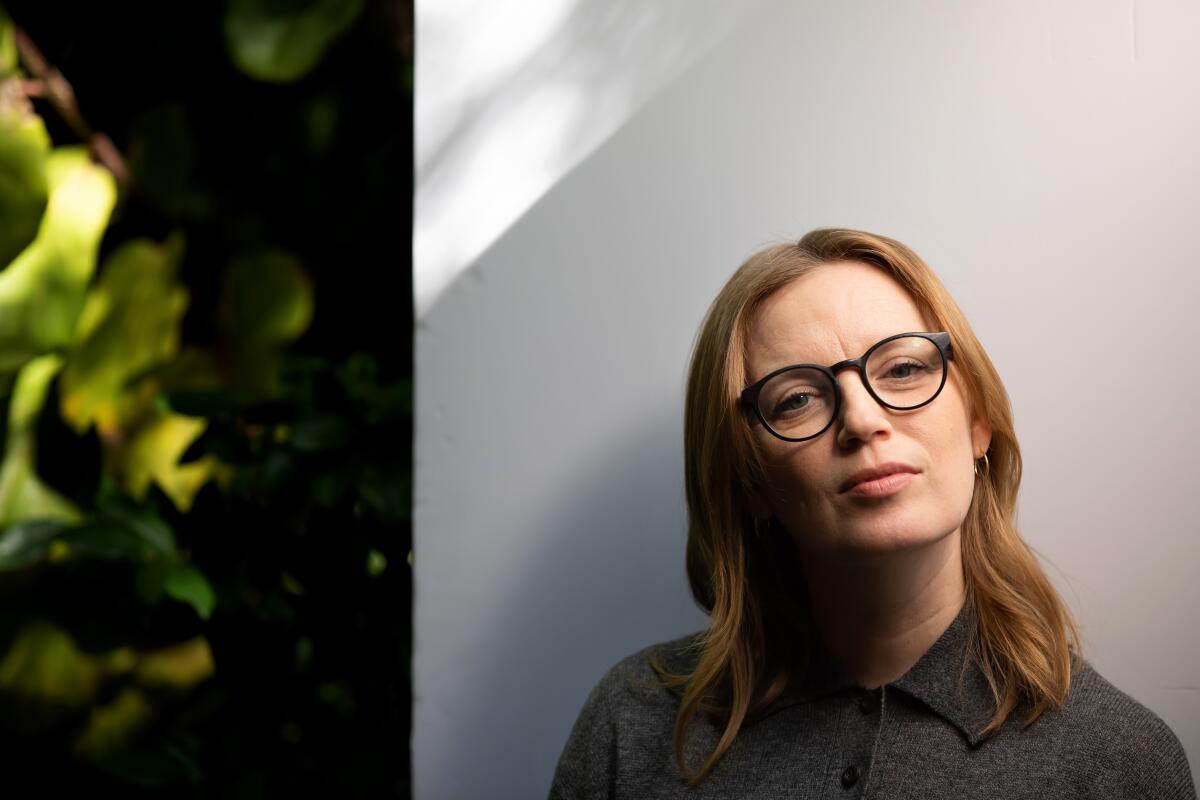
- Share via
NEW YORK — Sarah Polley wasn’t really looking for a project to direct when she was approached about adapting Miriam Toews’ novel “Women Talking” into a film. Since the release in 2012 of “Stories We Tell,” a deeply personal documentary about Polley’s late mother, the Canadian filmmaker has spent most of the last decade focused on raising her three children, now 10, 8 and 4.
Though she wrote “Alias Grace,” a limited series based on Margaret Atwood’s 1996 novel of the same name, Polley had chosen not to direct anything because, she said, “I didn’t think I could direct a film with kids the age mine were and be a present parent.”
But producers Dede Gardner and Frances McDormand, who wanted a writer-director to steer “Women Talking,” made an enticing offer: “‘Let’s just rewrite the rules,’” Polley recalled them saying. “‘Men have written these rules in the film industry and created absurd expectations of hours that are not conducive to families.’ I realized they were willing to break a model and build a new one to allow me to come back, and that was a really big deal.”
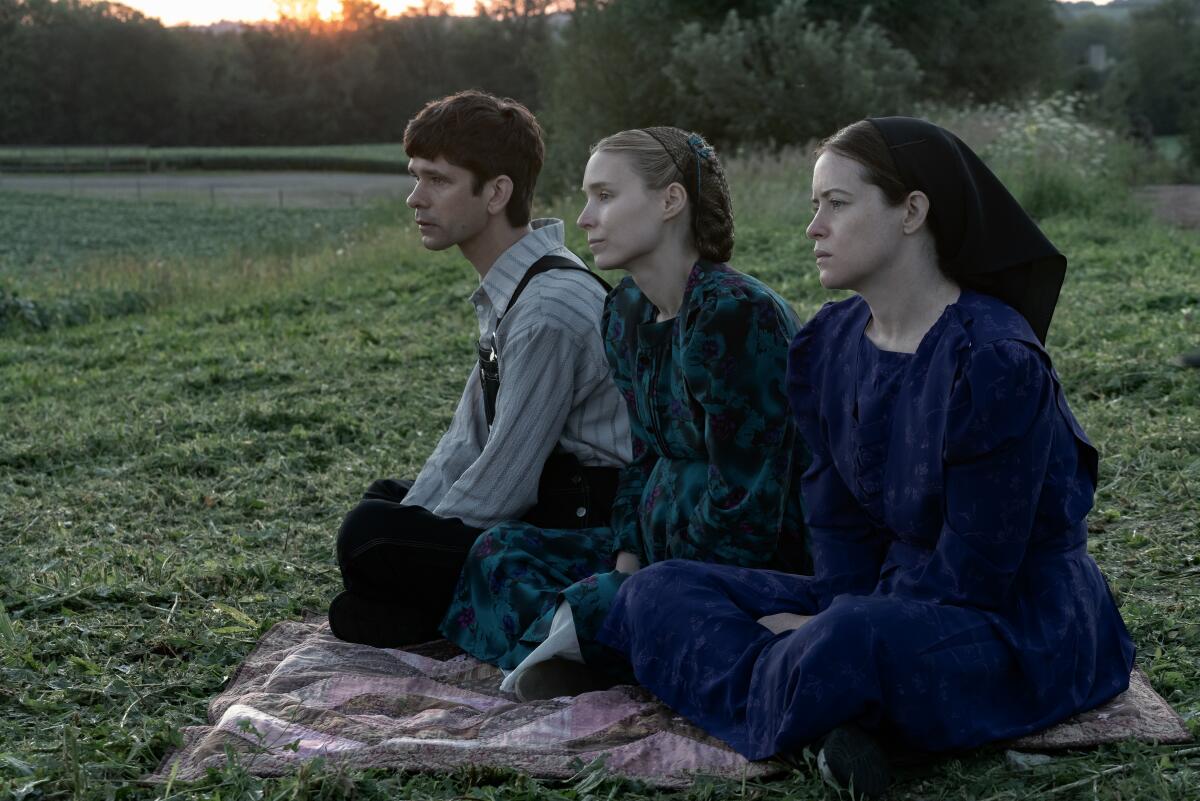
Polley wrote and directed “Women Talking,” which stars Claire Foy, Jessie Buckley and Rooney Mara as women reckoning with an epidemic of sexual violence that has devastated their insular community. For the former child actor, who made her directorial debut with the heartbreaking Oscar-nominated feature “Away From Her” in 2007, being behind the camera again was more thrilling than she could have predicted.
“I loved it so much it was embarrassing,” Polley said during a recent trip to Manhattan, where she confessed to more ambivalence about being away from her husband and children in Toronto: “We’re just not used to it.”
Based on Toews’ novel, which in turn was inspired by real events at an isolated Mennonite colony in Bolivia, “Women Talking” follows a group of women as they grapple with the discovery that men in their devout religious settlement have been drugging and raping women and girls — attacks that were dismissed as the work of Satan or perhaps “an act of wild female imagination.”
Over the course of a tense two-day period, the women convene in a hayloft to debate their options: Do nothing, stay and fight, or leave. Though the women can’t read, know little of the outside world and vary dramatically in temperament, their conversations are productive — radical, even. (A lone male ally, played by Ben Whishaw, is there to take minutes for them.)
In ‘Under the Banner of Heaven,’ based on the book by Jon Krakauer, Dustin Lance Black delivers an unflinching portrait of the faith he grew up in.
Filmed in a desaturated palette — meant to evoke “a faded postcard of a world that’s already past,” Polley said — “Women Talking” is gripping in its own right but also operates as an allegory about collective feminist action against sexual violence.
The film builds on themes of trauma and memory that have infused Polley’s previous work, including “Away From Her,” which looked at the effects of Alzheimer’s on a long marriage. And it arrives a few months after the publication of the essay collection “Run Towards the Danger: Confrontations With a Body of Memory,” in which Polley reflects on painful ordeals including her mother’s death when she was 11, child stardom, physical ailments such as scoliosis and an alleged sexual assault as a teenager.
“They’re all stories about recoveries, and moving through something. I didn’t need to do a trauma dump,” Polley said. “But what was interesting to me was this conversation between the past and the present — this idea of memory, and how our memories can be shaped by our current life, as much as our memories shape our current life.”
In addition to shorter hours, how did you make the set more conducive to family life?
I became determined to not create a stressed-out work environment. Part of the pressure cooker of being in film and having kids is this emergency-room mentality to everything, which is so absurd. Making a really conscious decision to try to defuse that wherever possible made a huge difference.
Were there moments when it felt like what you were doing by trying to improve the culture on set echoed what the women are doing in the film?
We were constantly trying to figure out new models of how the film set would be run and how to communicate. It was a really interesting experiment, because the spirit of the film kept infusing the process and vice versa. It was incredibly harmonious. But when there were disagreements, we had to follow the basic tenets of the film: We have to hear each other, we have to be willing to change our minds, and we have to take responsibility when we’ve misstepped. What you couldn’t do in the context of this film was freak out and walk away from someone.
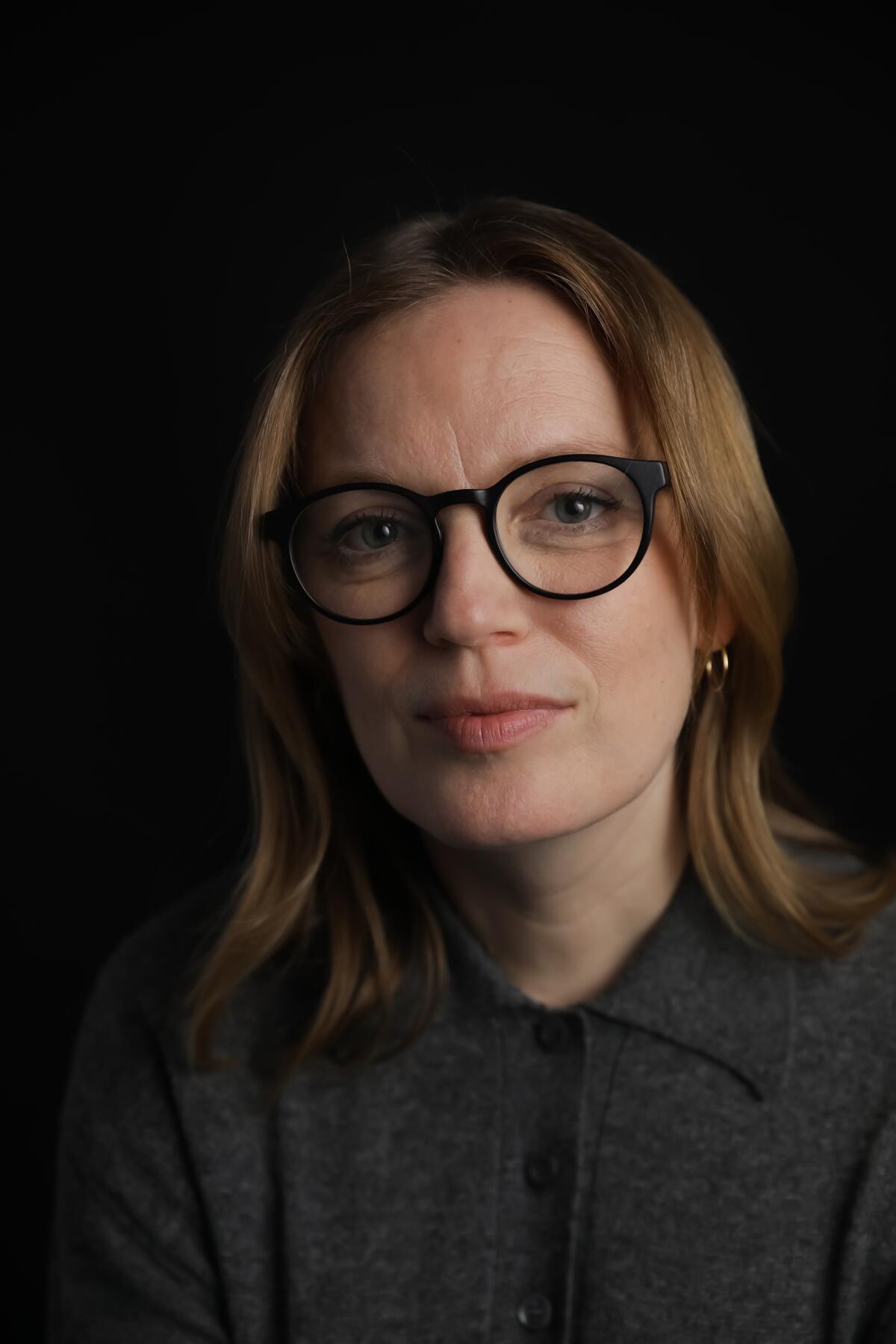
In the time that you’ve been away from filmmaking, the industry has gone through some massive changes. Could you feel that difference?
It had changed hugely. I just was so used to the texture of a film set being so much about casual sexual comments, jokes that you kind of laughed along with but made you squirm. I didn’t realize how oppressive that environment of constant casual sexism and misogyny had been until it was gone. It’s not like it’s all solved, but there is a kind of public-facing acknowledgment that this isn’t acceptable. I felt like I was also no longer apologizing for being a director. Most of the crew were really acclimatized to the fact that there was a woman director, or pretended to be. I did have a couple of incidents where I faced what felt like a misogynist dismissal. But the difference was this time everyone rallied around me right away. I wasn’t feeling isolated or crazy.
We don’t see any assaults in this film, only the aftermath. Tell me about that decision.
I never considered including the assaults. I think it’s a big decision to show sexual assault on film and I think it has to be made really carefully. I can’t think of an example where I felt like it was particularly additive to my experience watching a film; it usually feels unnecessary. What was most important was the aftermath of these assaults, what they had to process. Not the details of the assaults themselves.
What were your priorities in casting these roles?
Often I would have someone in mind and realize they could play two or three roles. So where would I put them in the company? It was a real puzzle. We also were really conscious of casting according to personality, because we wanted to create a collective mentality. If there had been one ego that took over that hayloft, we would have been dead. No one was allowed to have a stitch of makeup. And so that already eliminates a lot of actors. A lot of people, I’m 100% certain, would not have agreed to it, or they would have slapped some makeup on their face in secret.
The book is loosely based on a real series of events that took place in a Mennonite community in Bolivia. To what extent did you draw from that world when creating the look and the feel of this film?
We wanted it to be as authentic as possible in terms of the wardrobe and the production design. We were very careful to be specific to the colony where this took place. At the same time, we don’t ever say the word “Mennonite,” because I didn’t want to give people more of a reason to distance themselves from these issues — to say, “This is something that could only happen far away in this culture we don’t understand.”
Adapting the New York Times’ 2017 investigation of Weinstein meant turning to Ashley Judd, Gwyneth Paltrow and others who spoke out against him.
The women face three options: Do nothing, stay and fight, or leave. What do you think your instinct would be in this situation?
My instinct, I know, would have been to stay and fight. But the process of making this film changed me enough that I’ve shifted towards the idea it’s better to build a new table than get a seat at a rotten one.
There’s something so simple and yet so radical about this film. We rarely see movies that are just women talking. Did that make it hard to find references or touchstones when you were making it?
I was interested in the idea of these seminal, epic, muscular dramas. Every now and then, we would take on the tone almost of a western. Unconsciously, there’s a link there for me — we didn’t get that moment in film history from women’s points of view. So we have to rewind and go backwards and reclaim a little bit.
When did you figure out that you wanted to write and direct rather than act?
The one thing I knew from when I was 7 was that I wanted to be a writer. [Acting] was something I had fallen into as a kid through my family. I don’t think it’s where I would have found myself if I had been left to my own volition. I was never comfortable with the public aspect of being an actor and people feeling ownership over me. I remember being excited about acting when I was little, but then quickly, not. I was locked into a series contract [on the Canadian series “Road to Avonlea”] when I was 9, and working on “Baron Munchausen,” which was terrifying, when I was 8. I was pretty over it by that point.
“Baron Munchausen” was a famously chaotic production. Did that experience inform the way you work as a filmmaker?
[Laughs.] The way I set up sets is the opposite of everything that happened on that set. I have a really close friend who grew up in a really rough household. I asked her recently, “Why did you become such a good mother when you had no model?” And she said, “It was actually amazing, because I knew exactly what not to do. It was like an instruction manual in what not to do.” My time on “Baron Munchausen,” and a whole host of other sets, was a good instruction manual — if you do the opposite, then you’re probably safe.
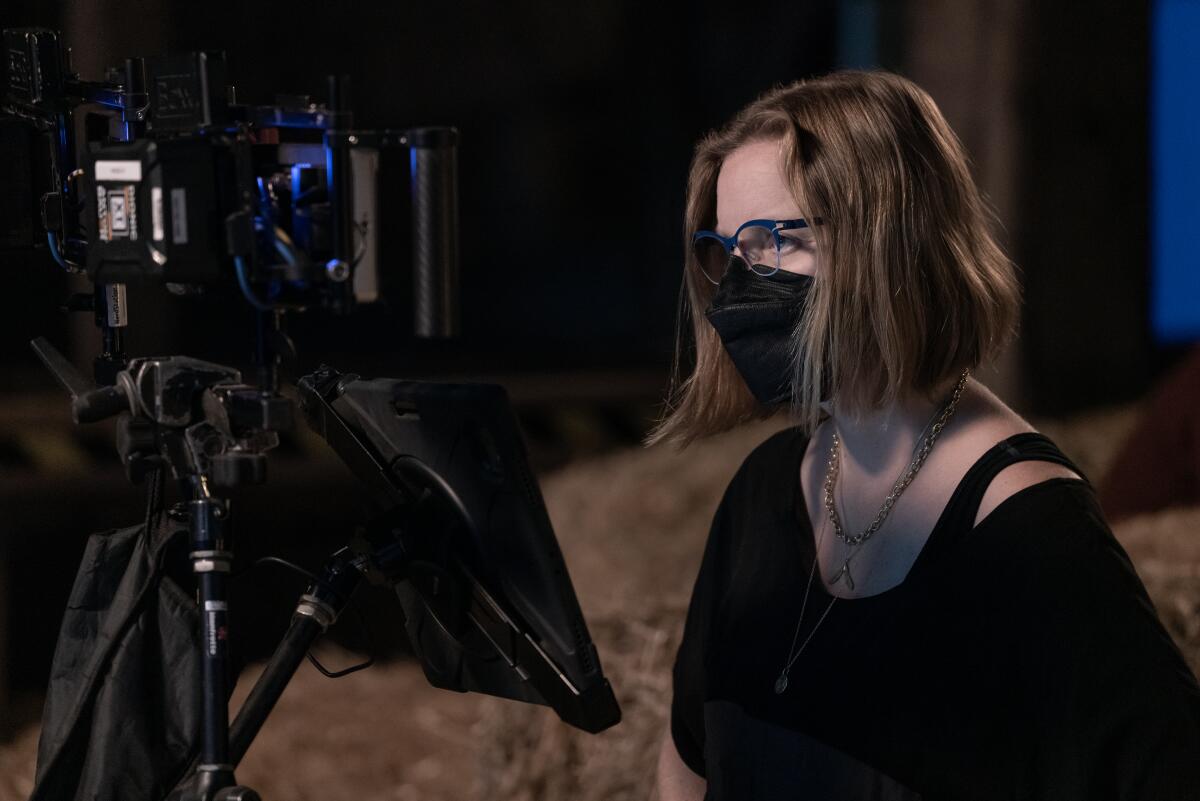
How do you approach working with children and young people now?
I generally avoid it and make the days as minimal as possible. I just have a policy that the kids’ well-being is going to be more important than the shot at all times. And if that means not getting a shot, we don’t get the shot. It’s not the end of the world. We had a policy on set where if a kid got bored or uncomfortable in any way, we just stopped. They could either take a break or go home, it was up to them.
I’m still not convinced [it was OK]. I feel like we did everything we possibly could do to make it a safe, happy place for them. But I can’t control what their home life is like or what pressures they feel to be doing this. You’re putting a kid in an adult environment without knowing what the parents’ intentions are or how well they’re being cared for. I’m never going to feel OK having a kid on set. I can say pretty confidently that the kids on our set had a good time according to them now. But I’ll ask them when they’re 40, and I’ll get a more accurate answer.
How do you look at your parents’ decision to let you act professionally as a child?
My parents didn’t have the life I have, so they didn’t have the knowledge I do of what it means to be a child actor. I can see how easily you could see a window into a world that you can’t get your kid access to another way. There’s also a class issue here. A lot of the kids on sets — and I was one of them — our university education wasn’t all taken care of. It’s really easy to judge, from my position now, a parent who makes that choice. But to someone who hasn’t been in the industry and doesn’t know what the pitfalls are, it’s understandable how somebody might go down that road.
You’ve ended up in a good place compared to a lot of former child actors. Do you have thoughts about why?
I had a lot of luck, having my career pick up when I was 18 in Atom Egoyan’s films. My family was in the film industry so I had connections. There’s no doubt that if I hadn’t had those advantages, I would have fallen off the rails.
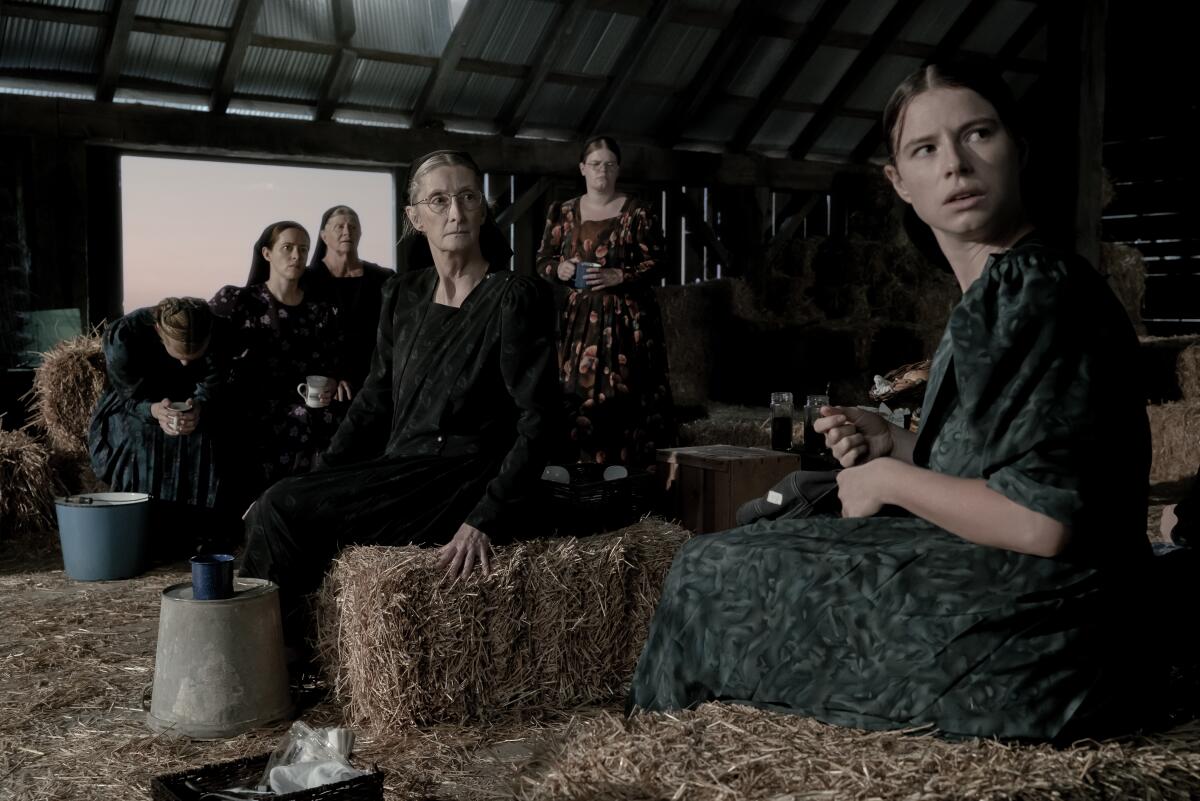
A lot of your work is concerned with memory.
I have a theory that if a thing keeps popping up, it’s because it hasn’t really been resolved — there’s a subconscious drive to mine that territory. I’m probably going to be making films about [memory] and writing books about it until I’ve gotten to the bottom of it.
I had this really interesting experience with my 8-year-old the other day. Their assignment had been to write a story about their life. And they wrote the story about how they had this major tongue laceration [when they were younger]. And I was like, “Oh, how did you tell the story?” My kid said, “I told the story of how my my tongue got cut and Daddy stayed with me all day at the hospital.” And I went, “Daddy wasn’t there. Daddy was in another city.” And so my kid said, “Well, I wrote it in pencil. It’s just a rough draft. So tomorrow, I’ll rub it out. And I’ll put your name.”
And I let that sit for a minute. And I went, “Do you now remember that I was there?” And they said, “No, I don’t.” I was like, “Then I think you have to keep it the way it is. I actually think the story that’s in your memory is more important than the facts of what happened.”
There’s something in there that’s really interesting about what gets remembered and what purpose it serves. The way these stories are iterated by our memories is actually key to something that is far more important than factual information. So If I am to be true to myself, and how I’ve told stories, I will not insist this child erase someone’s name and put my name.
This interest makes sense for you as someone who lost a parent at such a young age. Memories are important.
I think that’s right. I do a lot of thinking about “How will this get remembered?” I had this conversation with Margaret Atwood recently, where she was like, “You can’t control what’s going to be remembered.” And it threw me. Because, of course, it’s the most obvious thing in the world. But I don’t think I’d really integrated that because so much of my relationship with my mother is memories. I’ve got 11 years of memories, and I’m 43 now, so what gets remembered feels really important. I put far too much emphasis on thinking about that, especially in relation to my kids.
You write about the various health struggles you’ve been through — scoliosis, endometriosis, a high-risk pregnancy, a brain injury. How do you think those experiences shaped you?
I’m not sure I’d identified how many things happened to my body until the book was done. I don’t look at my life as one that’s particularly hard. I know people who’ve had much harder lives. But I think putting all these things out there, and then hearing other people’s responses — “Wow, a lot has happened to you” — I was kind of astonished. I think that it’s not a bad thing to have been through some stuff. It’s really hard to be empathetic if you’ve had perfect health. So I think of it as a gift. It allows you to not view vulnerability as weakness.
More to Read
Only good movies
Get the Indie Focus newsletter, Mark Olsen's weekly guide to the world of cinema.
You may occasionally receive promotional content from the Los Angeles Times.
